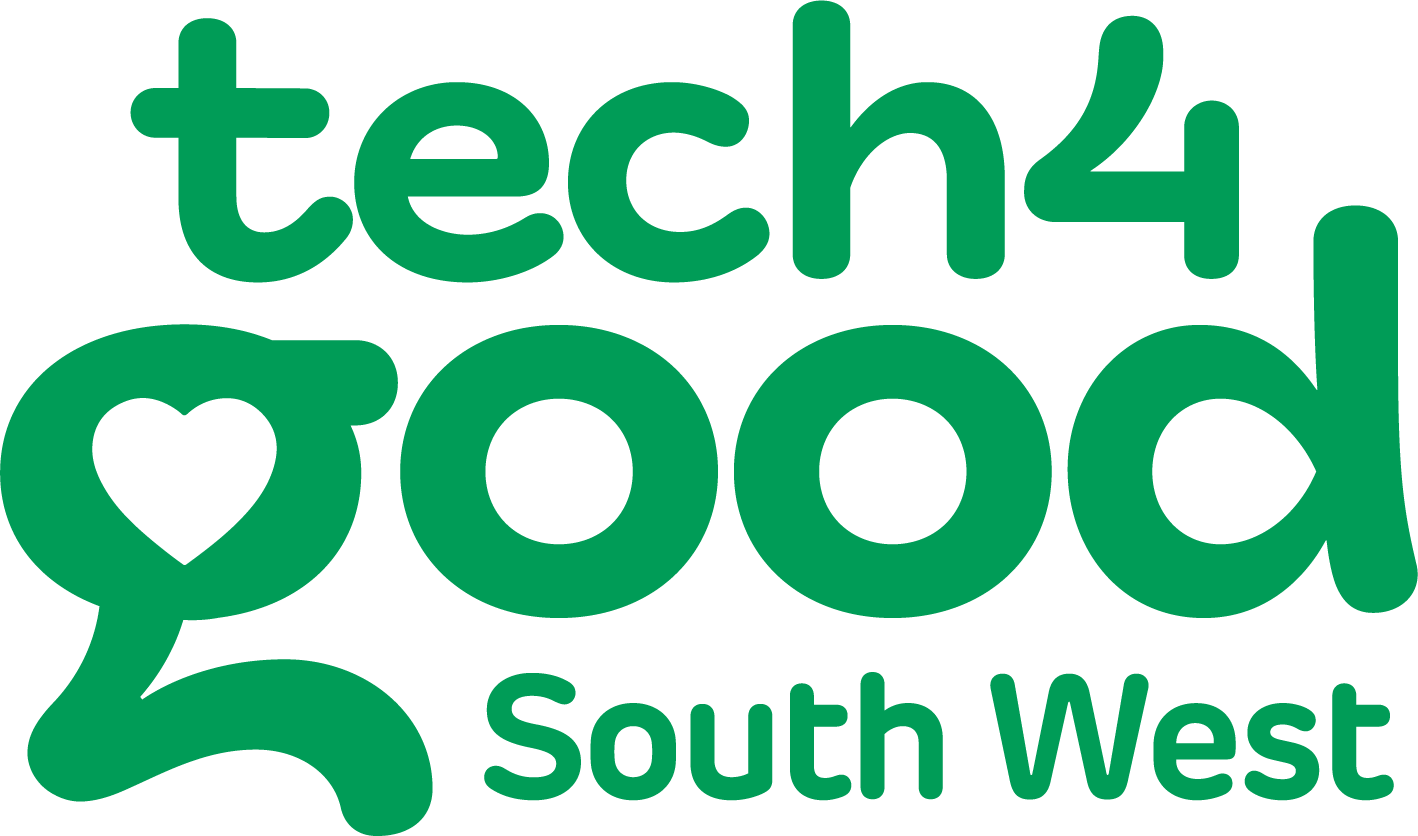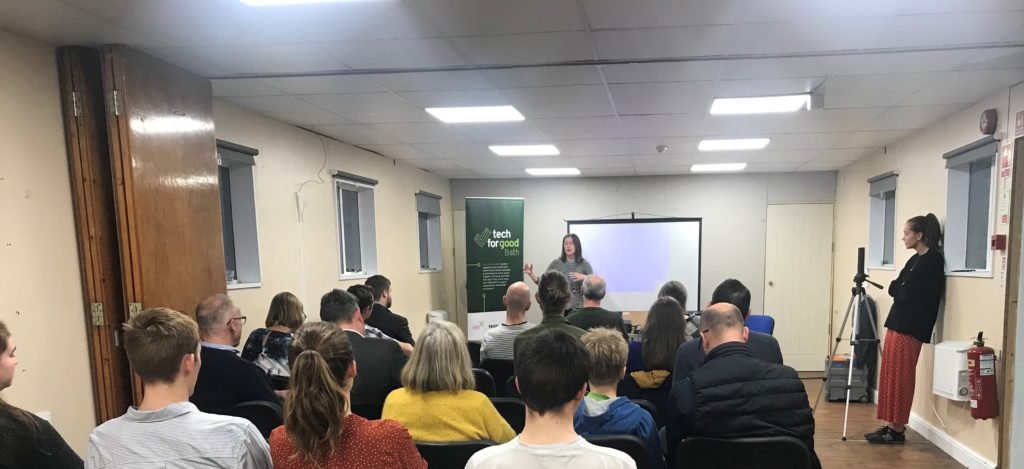Supporting People with Disability using Tech
In October 2018, Tech For Good Bath focused on how we can empower those with disabilities through digital technology. 4 inspiring local speakers joined us to explore some of the day-to-day challenges faced by those with disabilities and to discuss how technology can provide support and enhance the lives of those experiencing disabilities in our community.
According to Disabled Living Foundation, there are around 13.3 million disabled people in the UK, only 17% of whom were born with their disabilities, with the remaining 83% acquiring disabilities later in life. The idea that disability affects everyone underpinned our event — with 1 in 5 people in the UK suffering from a disability at one stage in their life, it is important for us, as a society, to consider the needs of our disabled population when innovating and designing our technology.
Designability — Enabling the power of music to support those with dementia
Designability are a charity transforming the lives of disabled people through innovation and technology. They are particularly well recognised for their work on the WizzyBug, an innovative powered wheelchair designed specifically for disabled children under five so that they can experience mobility and fun, and also music players and radios for people with dementia.
Hazel Boyd spoke to our audience about the power of music for those suffering from dementia. Whether it’s classical, jazz, 60s soul or hip hop, music has been found to soothe and stimulate the mind, resurfacing positive memories for some dementia patients. And yet, unlike the abundant supply of safety-based resources enabling this group to conduct daily tasks, very few products have been designed to encourage individuals with dementia to enjoy the finer things in life, including music.
Designability have stepped up to the challenge, designing a ‘one button’ music stereo that accommodates for the loss of short-term memory observable in dementia patients. Hazel discussed the importance of user testing in this process and the key factors of design tech – asking designers to question if their technology is ‘truly kind to the people who will use it’.
Designability are now working with Innovate UK on developing autonomous vehicle dashboards for the older generation — follow @DesignabilityUK on Twitter to hear about all the exciting developments to come.
OpenUp Music — Empowering our disabled community through music
Barry Farrimond co-founded OpenUp Music in 2014. Despite facing initial failure, Barry persisted on his mission of making music more accessible to those with disabilities and has now overseen a range of ambitious projects including the establishment of the UK’s first Open Orchestras (school orchestras within special schools) and the South-West Open Youth Orchestra, the UK’s first disabled-led regional youth orchestra.
Barry began by explaining that society has the power to radically change the way disability is perceived. Currently people with disabilities find certain places or experiences inaccessible because of the way these places are designed, this could change by being truly inclusive in the way we build, create and innovate.
Barry spoke about music being a social construct. He highlighted that most musical instruments require 2 hands and 10 very dexterous fingers to play them, disabling individuals who cannot meet these ‘requirements’. Traditional musical instruments may not be easily adapted to serve the needs of our disabled population, but technology is.
The OpenUp team have combined this knowledge with extensive research to develop the Clarion, an accessible music instrument 8 years in the making. The Clarion can be played with any part of the body, including your head, feet or even your eyes.
It is enhancing the lives of those with disabilities and in the words of one of the young musicians from OpenUp Music ‘disability should never be a barrier for people to play music’.
Bristol Braille — Developing the world’s first multi-line braille e-reader
Liam Smyth joined us from Bristol Braille Technology, a Social Enterprise working to develop Canute, a radical technological solution to the problem of inclining Braille illiteracy. Canute is the world’s first viable, multi-line, refreshable Braille e-reader; a ‘Kindle for blind people’, a one-of a kind product with enormous potential to transform the lives of the visually impaired.
The Canute is an affordable, 9-line, 360 cell braille e-reader. It is unique in that it enables its readers to translate continuous text, music, code or mathematical calculations, outperforming the ‘single line of text’ offered by other braille e-readers on the market today. Once again, this product has been carefully designed with their target community, analysing client needs and observing their product interactions to refine and develop the optimum prototype.
We were so excited to have Liam demonstrate the Canute for us — it is a phenomenal product that has been expertly manufactured and we have no doubt that it will truly transform the lives of our blind community.
Wiltshire Service Users’ Network — Engaging our community in the development of technology
Wiltshire Service Users’ Network was formed by people who use health and social services, to promote user involvement and support people to have a voice.
Louise Rendle joined us to express the paramount importance of adapting product and design approaches to match the requirements of those with disabilities. Louise emphasised that is important to not only consider your clients current responses to products, but also to consider the potential for their health and physical capabilities to deteriorate further.
Taking the time to fully understand your customers needs in the short term, will help you to help them and enhance their quality of life in the long term.
Sponsorship
Thanks to RIVIAM Digital Care sponsoring our event we were able to support Bath Mind’s Food For Thought project on World Mental Health Day 2018 and provide an amazing spread of freshly prepared food at our event. Stimulating the minds and stomachs of our super diverse crowd of attendees.
RIVIAM Digital Care provides a secure platform and services for health and social care organisations to collaborate and coordinate care. They enable their customers to make better use of their resources, build on information within existing NHS systems and deliver joined-up care with joined-up information. They are passionate about helping clinicians and administrators improve the lives of people using secure digital technology.




